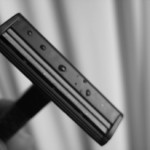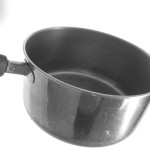Many years ago when I was in middle school one of my best friends helped himself to one of his father’s razors and a can of shaving cream and started shaving his chest. He told me that he had heard from someone in high school (always a reliable source of valid health information) that shaving causes hair to grow. After a few weeks of shaving one to two times a day and seeing no results, he abandoned his quest to speed up the process of entering into manhood. There are a number of interesting reasons why people might believe that shaving causes hair to grow back thicker. First, the base of hair or the part closest to the skin is the thickest. So following shaving, some might mistakenly think their hair actually appears thicker. Additionally, after you shave, the stubble has a blunt end or tip which can be rough (hence the term stubble) and give the appearance of being thicker. Some have even speculated that another factor that may have contributed to this myth is the fact that when we first start to shave when we are young, our hair is relatively thin, but it gets slightly thicker (this occurs naturally) as we get older, however this is not due to shaving. Finally, hair might actually appear slightly darker following shaving as the dark stubble is contrasted against the skin. Research on shaving and hair growth dates back to the 1920’s and does not support the idea that shaving causes hair to grow back thicker. Lynfield & Macwilliams (1970) conducted a study in which they studied whether shaving impacted the weight, length, and width of hair. These authors concluded that “No significant differences in rate of hair growth, either in length or weight, and no coarsening of individual hairs, could be ascribed to shaving”.
References:
Lynfield Y & Macwilliams P: Shaving and hair growth. The Journal of Investigative Dermatology (1970), Vol 55, pps. 170-172.



